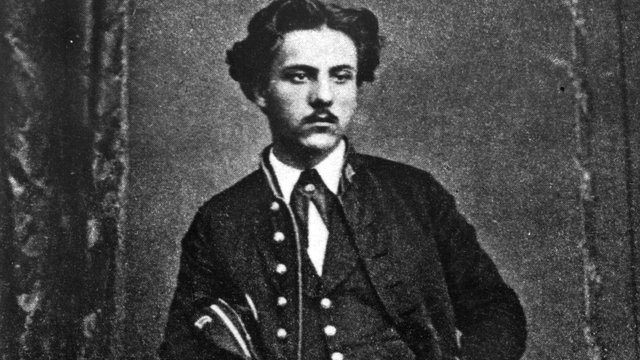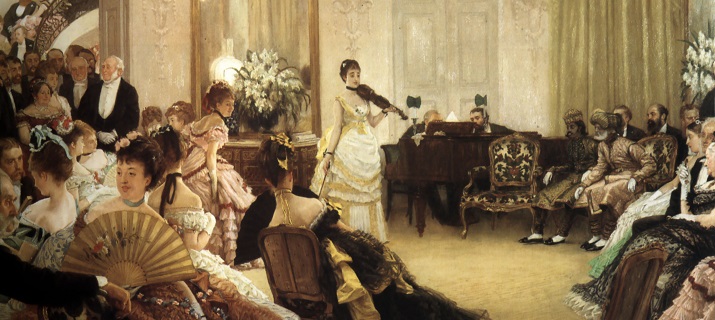
Music salon of Pauline Viardot
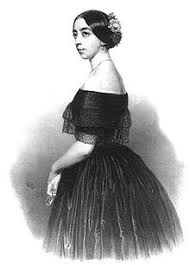
Pauline Viardot
Contemporary accounts all agree that Gabriel Fauré was extraordinarily attractive. “He had a dark complexion, a somewhat distant expression of the eyes, a soft voice and gentle manner of speech that retained the rolled provincial ‘r’, and a simple and charming bearing.” He was a veritable women’s magnet, and “his conquests were legion in the Paris salons.”
His good friend Camille Saint-Saëns introduced him to the salon scene, and to the family of famed mezzo-soprano Pauline Viardot in 1872. Marianne Viardot, Pauline’s youngest daughter, soon captivated the heart of the young composer. She had a fine voice that even impressed Clara Schumann, and Ivan Turgenev—a good friend of the family—hoped that she would take up a singing career. She performed regularly in her mother’s salon alongside her sister April Claudie, and she sung in a number of first performances of Fauré’s music.
Gabriel Fauré: Puisqu’ici bas, Op. 10, No. 1 (Anna-Marie Rodde, soprano; Theodore Paraskivesco, piano)
Gabriel Fauré: Tarentelle, Op. 10, No. 2 (Anna-Marie Rodde, soprano; Theodore Paraskivesco, piano)
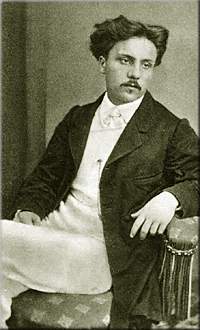
Gabriel Fauré, 1868
She Only “Felt Affection Mixed With Fear.”
Fauré courted Marianne for four painful years. Ivan Turgenev was particularly close to Marianne, and since he liked Fauré, he finally convinced her to accept the young composer’s proposal. In July 1877, Marianne and Gabriel were engaged. The relationship only lasted until the late autumn of 1877, when Marianne suddenly broke off the engagement.
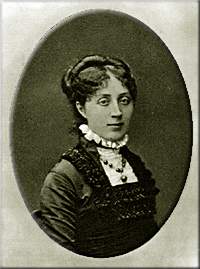
Marie Frémiet
Maybe she was overwhelmed by Fauré’s attention and passion, as friends reported that she only “felt affection mixed with fear.” The exact reasons remain unclear and Fauré was deeply distressed, with friends reporting that his “sunny disposition took a dark turn.” He started to suffer from bouts of depression, and he never really was given to understand the reasons behind the breakup. The Clerc family helped him to recover, and Saint-Saëns took him to see Liszt in Weimar in the hopes that the trip would uplift him. During these tumultuous times, Fauré composed the masterpieces of his youth, including his first violin sonata.
Gabriel Fauré: Violin Sonata No. 1, Op. 13 (Gil Shaham, violin; Akira Eguchi, piano)
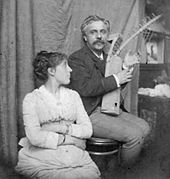
Marie and Gabriel Fauré, 1889
The Marriage That Was Doomed to Fail From the Beginning
Six years of emotional drifting passed since the engagement with Marianne Viardot had been severed. He was approaching the age of forty and was still a bachelor sharing an apartment with his younger colleague André Messager. Clearly it was time to settle down and get married. At least that’s what the notorious matchmaker Marguerite Baugnies had in mind. The story goes that she put the name of three eligible young ladies—all with surnames beginning with F—into a hat, and Fauré pulled out the piece of paper bearing the name Marie Frémiet.
She was the daughter of the leading sculptor Emmanuel Frémiet, and Marguerite Baugnies negotiated the marriage. The sting of Marianne’s rejection must still have been felt painfully, otherwise Fauré would hardly have consented to an arranged marriage. Marie was unkindly described as “without beauty, or wit, or a fortune.” And a particularly cutting remark suggested, “She was so plain that Fauré apparently was to marry his mother’s chambermaid.” In the event, the marriage took place on 27 March 1883, and some say, it was doomed to fail from the beginning.
Gabriel Fauré: Piano Quartet No. 1 in C Minor, Op. 15 (The Amara Piano Quartet)

Portrait of Gabriel Fauré by John Singer Sargent, 1889
The couple moved into a home in the seventeenth arrondissement, and by 29 December 1883 their first son Emmanuel was born. It was said that the marriage was affectionate, but Marie soon cast herself as a domestic martyr and envied her husband’s success. She certainly felt that her own artistic potential—she delicately painted fans that were sold to supplement the family income—were being smothered by the demands of being a mother. After the early years of marriage, which saw the birth of a second son Philippe, Fauré simply longed for his freedom. Although he conducted his many affairs with discretion, they nevertheless added to his wife’s suffering. They soon understood that their relationship worked best at a distance, and Fauré expressed the emotional turmoil in a vocal quartet with piano accompaniment.
The Young Men:
Inhuman women who, without mercy,
Make fun of our turmoil,
Love! Love when you are loved!
The Young Women:
Ungrateful men who do not suspect
The dreams you arouse in your wake,
Love! Love when you are loved!
Gabriel Fauré had an affair with Emma Bardac, and “for the first time he experienced a fulfilling, passionate relationship which extended over several year.” But that’s clearly the topic of our next “Love” episode.
Gabriel Fauré: Requiem, Op. 48 (Lisa Beckley, soprano; Nicholas Gedge, bass-baritone; Oxford Schola Cantorum; Oxford Camerata; Colm Carey, organ; Jeremy Summerly, cond.)

